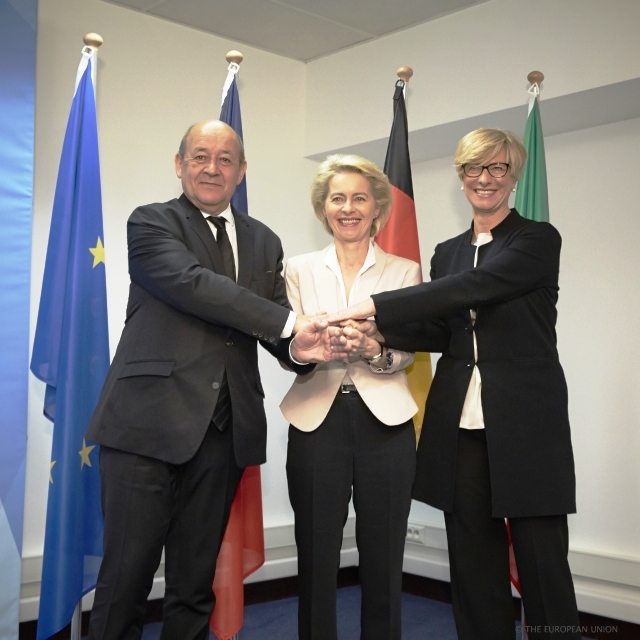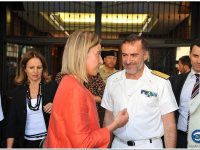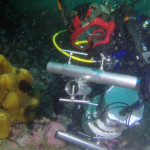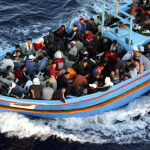
From left to right: Mr Jean-Yves LE DRIAN, French Minister of Defence; Ms. Ursula VON DER LEYEN, German Federal Minister of Defence; Ms. Roberta PINOTTI, Italian Minister of Defence.
France, Germany and Italy will strengthen European defence cooperation, promote a more competitive defence industry while developing and maintaining European industrial key capabilities. Once operational, the system will perform long endurance intelligence, surveillance and reconnaissance missions with a variety of payloads.
Remotely Piloted Aircraft Systems (RPAS) have demonstrated their importance in recent military operations, particularly for surveillance and information gathering. However RPAS can also offer a wide range of civil applications such as infrastructure surveillance, fire fighting, disaster or environmental monitoring, as well as border control and management.
Considering the potential for military and civil use of RPAS in Europe, and that challenges related to the air traffic integration will be overcome in the longer term, there is a need to anticipate the next generation of MALE RPAS (beyond 2020).
The Common Staff Target to be considered as the initial step, was endorsed by the EDA Steering Board in November 2013. On that basis, three Member States (Germany, France and Italy) engaged in the process of producing common requirements for the future system. EDA supports this activity especially in the areas of air traffic integration and airworthiness certification. The next phase will be the involvement of additional Member States into a project with clear objectives in terms of performance, timescale and cost.
The market ranges from small tactical mini and micro aircraft to large sophisticated systems. Investment in RPAS at the higher end has the additional benefit of helping to sustain European aeronautic competences in the design and engineering necessary for future manned fixed wing aircraft.
Over half the cost of building a complex intelligence, surveillance and reconnaissance RPAS is related to sensing technologies and data exploitation capabilities; excellence in these areas will be necessary for future industrial competitiveness in the global marketplace. At present there is the risk that Europe could become dependent on third country suppliers for such technologies. All EDA’s current activities in the RPAS domain are aiming at ensuring that this level of dependence is under control.





 18 Mag 2015
18 Mag 2015
 Inviato da Anthony Brown
Inviato da Anthony Brown 



















